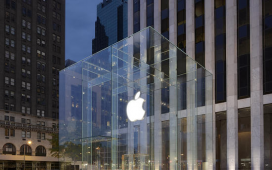macOS 16 is Apple’s upcoming operating system for Mac computers. One of the things that generates the most curiosity among Apple fans every year is what the company will name the next macOS system. No surprise, Apple always makes a big deal about the name of its next macOS release. So, it’s natural for users to wonder what the company will call macOS 16.
Even before switching from Mac OS X to macOS, Apple had been naming its software updates based on locations in California. From Mac OS X Mavericks to macOS 15 Sequoia, the company has followed a pattern of using names inspired by Californian places.
A 2021 rumor suggested that Apple was preparing to name macOS Mammoth, as the company filed for a trademark extension for the name that year. Mammoth was also rumored for 2021 when Apple unveiled Monterey and again in 2022. For 2025, it’s unclear what Apple will name macOS 16. Internally, the software is currently known as “Cheer.”
However, Apple might break its pattern of using California locations. When the company introduced Mavericks, Craig Federighi famously said, “For the next 10 years, we’ll be naming macOS releases after locations in California.”
Since Apple has now completed that 10-year mark, it’s possible that a more profound UI change could lead to a departure from this pattern. For macOS Sequoia, Cupertino already deviated a little, as it highlighted awareness of threatened or endangered species, like the California Redwood, also known as Sequoia.
In fact, a Redditor raised this possibility a year ago when they correctly predicted Sequoia. They speculated that Apple might eventually name macOS versions after species, such as Condor or Bighorn, to raise awareness for animals and plants that need extra care.
With a major revamp rumored for macOS 16, iOS 19, and iPadOS 19, Apple could take this opportunity to completely change the naming pattern for macOS 16 or at least follow the logic suggested by the Redditor last year.
Additionally, Apple is still supporting several Mac computers with Intel chips, but as the company moves closer to releasing its M5 Macs, it may soon say goodbye to the last Intel-supported Macs.






